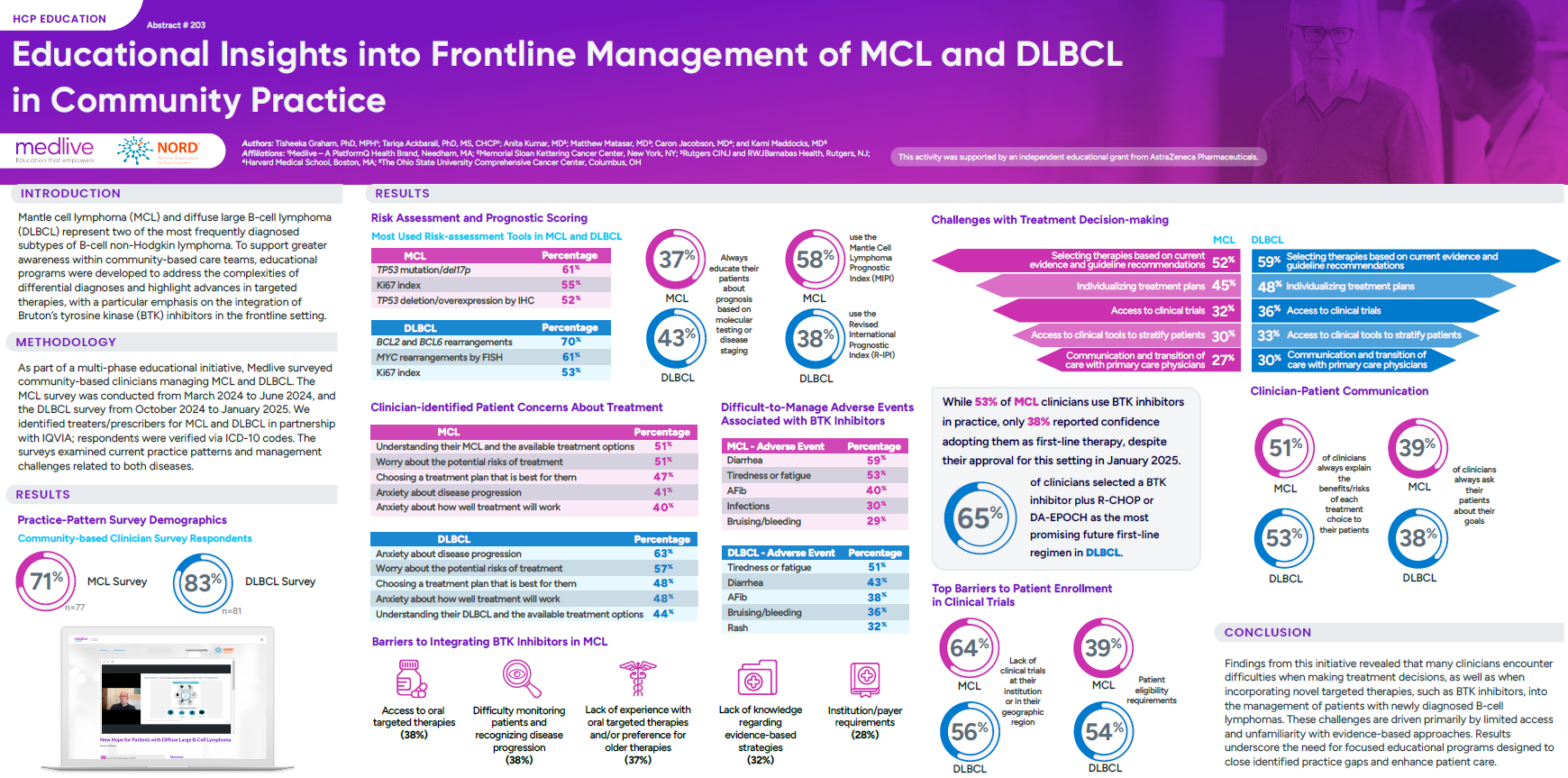
*This information was originally published as part of an abstract for the 2025 ASCO Quality Care Symposium.*
Understanding MCL and DLBCL and the Unmet Patient Need
Mantle cell lymphoma (MCL) and diffuse large B-cell lymphoma (DLBCL) represent two of the most frequently diagnosed subtypes of B-cell non-Hodgkin lymphoma. The treatment landscape for these diseases is advancing with the introduction of novel targeted and cellular therapies, and more options are on the horizon. As oncology teams and caregivers prepare to apply these innovations, research underscores the importance of building acceptance and readiness so that healthcare providers (HCPs) have the guidance needed to incorporate new strategies effectively and patients and caregivers (P/Cs) are equipped to engage in informed discussions with their care teams.
The Medlive Approach
To help address this need, as part of a multi-phase educational initiative with NORD, Medlive surveyed community-based clinicians managing MCL and DLBCL. The surveys examined current practice patterns and management challenges related to both diseases.
“At NORD, we know that rare cancer patients face unique barriers, from delayed diagnosis to limited treatment options. That’s why partnerships like NORD’s with Medlive matter. By creating dedicated spaces like our Medlive partner page, we’re able to share resources, stories, and education that help clinicians better understand the realities of rare diseases. Together, we’re working to make sure quality care means care that truly reflects every patient’s experience, no matter how rare.”
– Katie Kowalski, Associate Director of Education, National Organization for Rare Disorders (NORD)
Key Findings from the Survey
- Therapeutic integration challenges: More than half of clinicians managing MCL (53%) reported using BTK inhibitors, but only 38% felt confident adopting them as frontline therapy. In DLBCL, 65% selected BTK inhibitor combinations with R-CHOP or DA-EPOCH as the most promising future frontline regimen, underscoring strong interest in the innovation.
- Patient concerns and education needs: Clinician-reported patient concerns varied by disease. Anxiety about disease progression was more common among patients with DLBCL than those with MCL (63% vs 41%). Concerns about treatment risks were similar across both groups (MCL 51%, DLBCL 57%), while more patients with MCL reported difficulty understanding their disease and available options (51% vs 44%). These differences, combined with persistent worries about efficacy (40% in MCL; 48% in DLBCL), highlight the need for tailored education that builds confidence in evidence-based use of new therapies and strengthens patient–clinician communication
Conclusion – Collaborating for Improved Patient Outcomes
These findings highlight the crucial role of education in closing knowledge gaps, addressing adoption challenges, and empowering both clinicians and patients to make informed treatment decisions in MCL and DLBCL. By improving awareness and confidence in the integration of novel targeted therapies such as BTK inhibitors, care teams can better align treatment strategies with patient needs and improve outcomes.
To learn more about partnering with Medlive to develop impactful CME programs, reach out via our Contact Us page.
This initiative was supported by an independent educational grant from AstraZeneca Pharmaceuticals.




